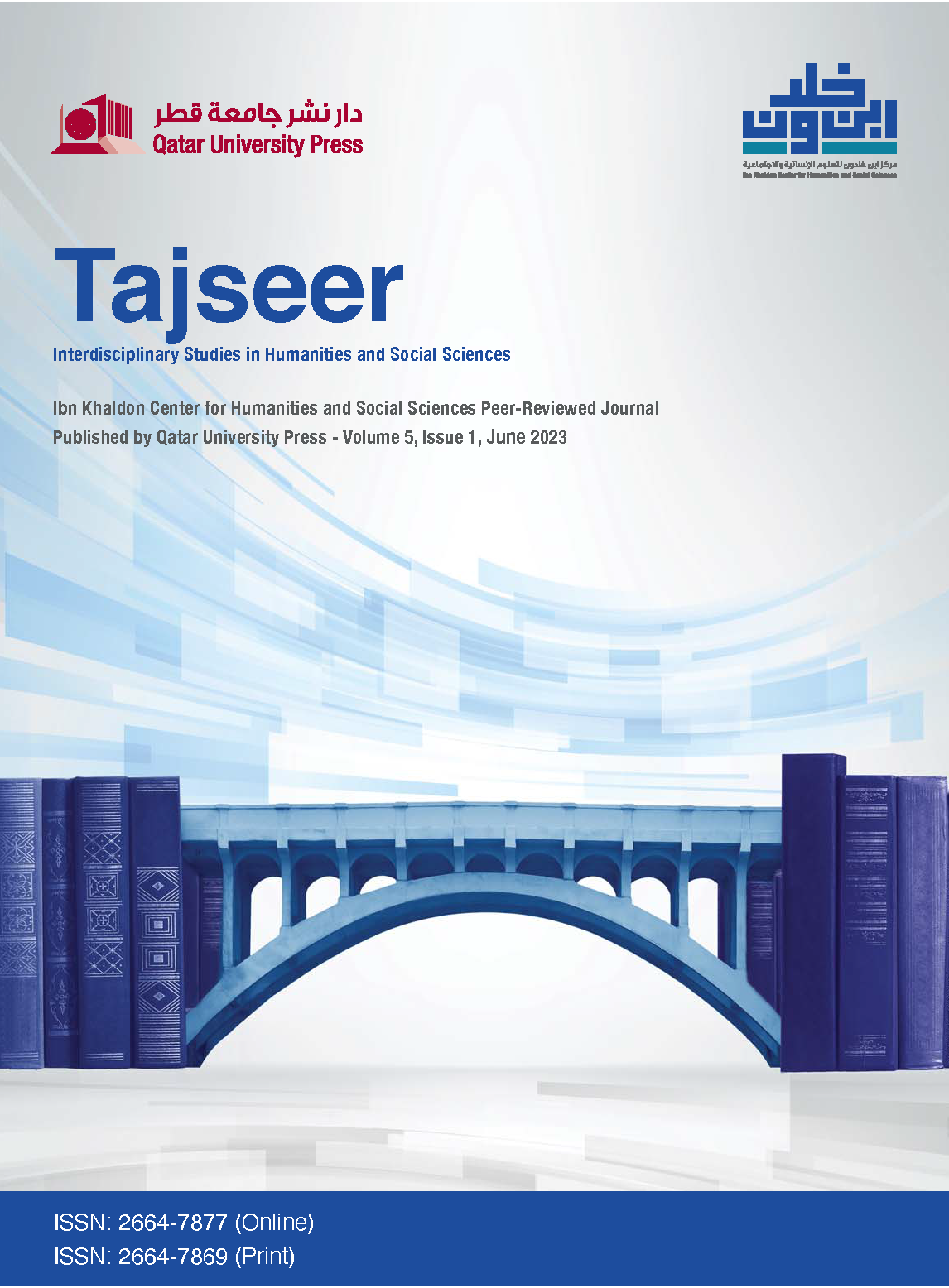The Interdisciplinarity Revolution
Abstract
Contemporary interdisciplinary research is often described as bringing some important changes in the structure and aims of the scientific enterprise. Sometimes, it is even characterized as a sort of Kuhnian scientific revolution. In this paper, the analogy between interdisciplinarity and scientific revolutions will be analysed. It will be suggested that the way in which interdisciplinarity is promoted looks similar to how new paradigms were described and defended in some episodes of revolutionary scientific change. However, contrary to what happens during some scientific revolutions, the rhetoric with which interdisciplinarity is promoted does not seem to be accompanied by a strong agreement about what interdisciplinarity actually is. In the end, contemporary interdisciplinarity could be defined as being in a ‘pre-paradigmatic’ phase, with the very talk promoting interdisciplinarity being a possible obstacle to its maturity.
Metrics
##plugins.themes.bootstrap3.article.details##
InterdisciplinarityRhetoric of ScienceScientific DisciplinesScientific RevolutionsThomas Kuhn
Ankeny, Rachel and Sabina Leonelli. “Repertoires: A Post-Kuhnian Perspective on Scientific Change and Collaborative Research”. Studies in History and Philosophy of Science, V60 (2016), pp. 18-28.
Bammer, Gabriele. Disciplining Interdisciplinarity: Integration and Implementation Sciences for Researching Complex Real-World Problems, Canberra: ANU Press, 2013.
Barry, Andrew and Georgina Born. Interdisciplinarity: Reconfigurations of the Social and Natural Sciences, Oxon: Routledge, 2013.
Biagioli, Mario. Galileo, Courtier, Chicago: University of Chicago Press, 1993.
–––. “The Anthropology of Incommensurability”. In: Studies in History and Philosophy of Science, Vol. 21 (1990), pp. 183-209.
Bradley, Seamus and Karim Thébault. "Models on the Move: Migration and Imperialism". in: Studies in History and Philosophy of Science, Vol. 77 (2019).
Choi, Bernard and Anita Pak. “Multidisciplinarity, Interdisciplinarity and Transdisciplinarity in Health Research, Services, Education and Policy: Definitions, Objectives, and Evidence of Effectiveness”. Clinical and Investigative Medicine, Vol. 29 (2006), pp. 351-364.
Dear, Peter. Discipline and Experience: The Mathematical Way in the Scientific Revolution, Chicago: University of Chicago Press, 1995.
–––. “Mixed Mathematics”. in: Harrison, Peter and others, Wrestling with Science: From Omens to Science, Chicago: University of Chicago Press, 2011.
Frodeman, Robert and others. The Oxford Handbook of Interdisciplinarity, Oxford: Oxford University Press, 2010.
Frodeman, Robert. Sustainable knowledge: A Theory of Interdisciplinarity, New York: Palgrave Macmillan, 2014.
Funtowicz, Silvio and Jerome Ravetz. “Science for the Post-Normal Age”. Futures, Vol. 31 (1993), pp. 735-755.
Gibbons, Michael, et al. The New Production of Knowledge: The Dynamics of Science and Research in Contemporary Societies. London: SAGE Publications Ltd, 1994.
Grüne-Yanoff, Till. “Interdisciplinary Success without Integration”. In: European Journal for Philosophy of Science, Vol. 6 (2016), pp. 343-360.
Hansson, Bengt. "Interdisciplinarity: For What Purpose?". Policy Science, Vol. 32 (1999), pp 339-343.
Hoffmann, Michael, and others. “Philosophy of and as Interdisciplinarity”. In: Synthese Vol. 190 (2013), pp. 1857-1864.
Holbrook, Britt. “What is Interdisciplinary Communication? Reflections on the Very Idea of Disciplinary Integration”. In: Synthese, Vol. 190 (2013), pp. 1865-1879.
Khan, Robert. “Interdisciplinary Collaborations Are a Scientific and Social Imperative”. In: The Scientist, last accessed: 09/2018, https://www.the-scientist.com/opinion-old/interdisciplinary-collaborations-are-a-scientific-and-social-imperative-59085.
Klein, Julie T. “A Taxonomy of Interdisciplinarity”. In: Frodeman, Robert, and others, The Oxford Handbook of Interdisciplinarity, Oxford: Oxford University Press, 2010.
–––. Crossing Boundaries: Knowledge, Disciplinarities, and Interdisciplinarities. Charlottesville, VA: University Press of Virginia, 1996.
–––. “Evaluation of Interdisciplinary and Transdisciplinary Research: A Literature Review”. American Journal of Preventive Medicine, Vol. 35 (2008), SS116-123.
–––. Interdisciplinarity: History, Theory and Practice. Detroit: Wayne State University Press, 1990.
Knuuttila, Tarja and Andrea Loettgers. “Model Templates Within And Between Disciplines: From Magnets to Gases—and Socio-Economic Systems”. in: European Journal for Philosophy of Science, Vol. 6 (2016), pp. 377- 400.
Krohn, Wolfgang. “Interdisciplinary Cases and Disciplinary Knowledge”. In: Frodeman, Robert, and others, The Oxford Handbook of Interdisciplinarity, Oxford: Oxford University Press.
Kuhn, Thomas S. “Afterwords”. In: Horwich, Paul, World changes: Thomas Kuhn and the Nature of Science. Cambridge: MIT Press, 1993.
Lennox, James. “Aristotle, Galileo and Mixed Sciences”. In: Wallace, William. Reinterpreting Galileo. Catholic University of America Press, 1986.
Mäki, Uskali. "Philosophy of Interdisciplinarity. What? Why? How?". In: European Journal for Philosophy of Science V6 ((2016), pp. 327-342.
Mancosu, Paolo. Philosophy of Mathematics and Mathematical Practice in the Seventeenth Century. Oxford: Oxford University Press, 1996.
Metzger, Norman and Richar Zare. “Interdisciplinary Research: From Belief to Reality”. In: Science V283 (1999), pp. 642- 43.
National Academy of Sciences (NAS). Facilitating Interdisciplinary Research. Washington: National Academy Press, 2005.
National Science Foundation (NSF). Impact of Transformative Interdisciplinary Research and Graduate Education on Academic Institutions (No. NSF 09-519). Arlington, VA: National Science Foundation, 2008.
Newell, William. “Decision-making in Interdisciplinary Studies”. In: Morçöl, Göktug, Handbook of Decision-making. New York: Marcel Dekke, 2007.
Nicolescu, B. Manifesto of Transdisciplinarity. Albany, NY: State University of New York Press, 2002.
Nowotny, Helga, Peter Scott and Michale Gibbons. Re-thinking Science: Knowledge and the Public in the Age of Uncertainty. Oxford: Polity, 2001.
Pohl, Christian, et al. “Integration”, In: Hadorn, Gertrude Hirsch, and others, Handbook of Transdisciplinary Research. Netherlands: Springer, 2008.
Repko, Allen and Rick Szostak. Interdisciplinary Research: Process and Theory. London: SAGE Publications Ltd, 2008.
Robertson, David, Douglas Martin and Peter Singer. “Interdisciplinary Research: Putting the Methods under the Microscope”. In: BMC Medical Research Methodology, Vol. 3 (2003), pp. 20-24.
Sarewitz, Daniel. “Against Holism”. In: Galison, Peter and Stump, David, The Disunity of Science, Stanford: Stanford University Press, 1996.
Turner, Stephen. “Knowledge Formation: An Analytic Framework”. In: Frodeman, Robert and others, The Oxford Handbook of Interdisciplinarity, Oxford: Oxford University Press, 2010.
Turnpenny, John, Mavi Jones and Irene Lorenzoni. “Where now for Post-Normal Science? A Critical Review of its Development, Definitions, and Uses. Science”. Technology, and Human Values, Vol. 36 (2011), pp. 287-306.
Wise, Norton. “Mediations: Enlightenment Balancing Acts or the Technologies of Rationalism”. In: Horwich. Paul,, World changes: Thomas Kuhn and the Nature of Science. Cambridge: MIT Press, 1993.


